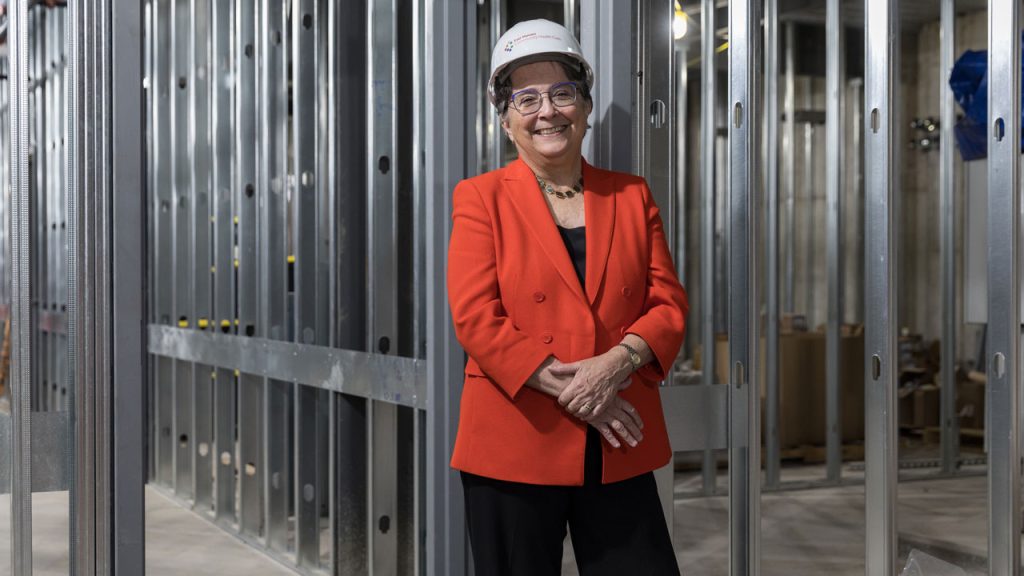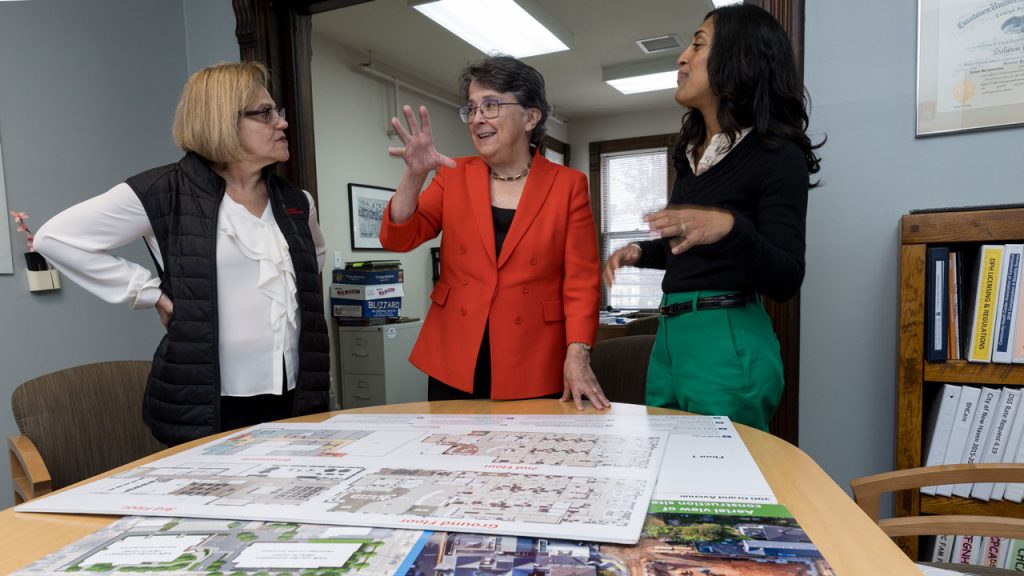Medicine is a right, not a privilege.
That belief has been at the heart of Dr. Suzanne Lagarde’s career for decades. It led her to study medicine at Cornell University after graduating from Fordham in 1971. It led her to become a gastroenterologist. And it led her to leave her own practice to become CEO of Fair Haven Community Health Care, a federally qualified health center based in New Haven, Connecticut, that has about 34,000 patient visits each year, according to Lagarde.
“Caring for patients is really first and foremost,” she said. “What makes medicine really special is that ability to improve someone’s life—you make somebody physically feel better, but it’s so much more than that.”
When she was named to lead Fair Haven in 2014, the nonprofit had only two days of cash on hand. Today, it’s expanding to meet the needs of the community with a new facility under construction that will feature 26 exam rooms, a pharmacy, and new behavioral health and addiction treatment spaces. In addition, during her tenure, the staff has grown from 150 to more than 300, and the center has expanded from working in four schools to 12 schools.

Lagarde stressed the importance of centers like hers in caring for the most vulnerable populations, including those who are undocumented and those who don’t have access to insurance or the ability to pay for care.
“There are roughly 1,400 [federally qualified] health centers in the country—we are the safety net,” she said. “We are the largest primary care practice in the entire country, and we provide care with better quality outcomes … much more cost-effectively.”
In recent years, Lagarde has shifted her focus from seeing patients to advocating for them and overseeing the center’s work. She cited recent policy changes at the state level that allow undocumented children under the age of 15 to access Medicaid, something she and members of the center had been fighting to make happen for years.
“It’s looking at medicine much more holistically,” she said, “not just looking at it as, ‘I take care of your cough, your belly pain, your what have you,’ but I’m taking care of a population.”
A decade ago, Fordham officially became a “changemaker campus.” But the changemaking impulse has been at the heart of a Fordham education for generations. Read more about other Fordham changemakers.
RELATED STORY: Danielle Citron Is Fighting for Our Cyber Civil Rights
RELATED STORY: Anthony Martinez Is Bringing Bronxites to the River

